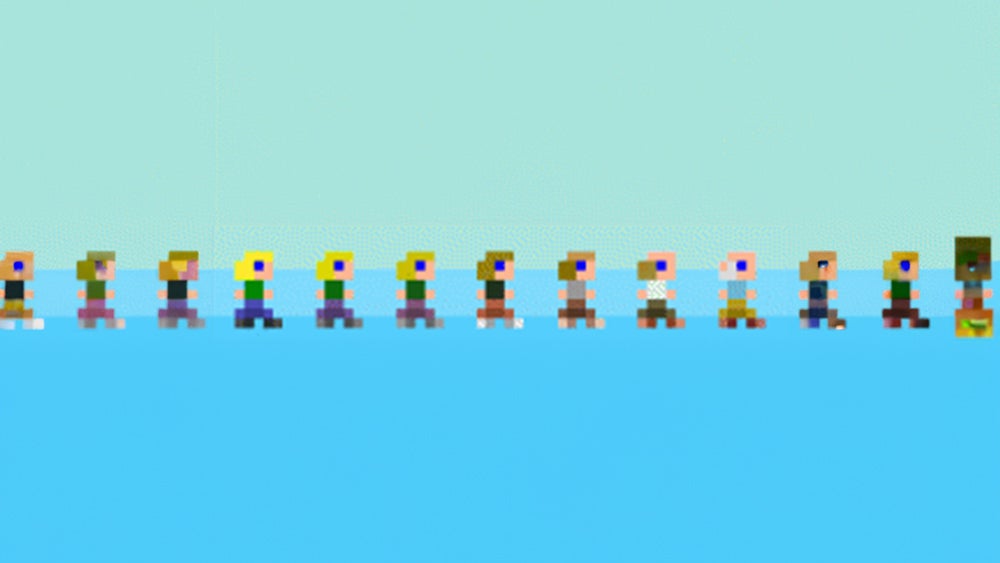For Students and Advisors
Dr. Robert Batchelor
Director of Digital Humanities
- batchelo@georgiasouthern.edu
- IAB 3013 (Statesboro)
- Hawes 109 B (Armstrong)
Armstrong Campus
Dr. Kurt Knoerl
Associate Professor of Digital History and Humanities
- kknoerl@georgiasouthern.edu
- Hawes 108A
About the Program
Where Culture Meets Code—and Ideas Go Public
Available Online and In-Person (Statesboro & Armstrong Campuses)
The Digital Humanities Minor combines creativity, storytelling, and technology. Whether you’re majoring in History, English, Communication, Art, Business and Marketing, Education, or another field, DH gives your degree a digital edge—showing future employers that your research, writing, and design skills translate into the tech-driven workplace.
The Digital Humanities Minor lets you tell stories, analyze data, and design experiences that connect culture and technology. Whether you’re on campus or online, DH helps you make ideas visible—and make them matter.
Why Choose Digital Humanities?
- Bridge culture and technology. Learn digital storytelling, data visualization, podcasting, gaming, and AI tools that connect human experience to innovation.
- Go hands-on. Every DH student completes an internship or capstone project that turns ideas into public-facing work.
- Work where you are. Complete the program fully online, on the Statesboro campus (home to the H-Lab), or on the Armstrong campus in Savannah, where our oral-history and podcasting spaces support community-based projects.
- Build your portfolio. Graduate with a set of real digital projects to share on your website or LinkedIn profile.
- Learn to work with AI. Use creative and ethical approaches to generative AI, vibe coding, data analysis, and automation to expand how we research, tell stories, and build digital experiences.
Program at a Glance:
Credits: 15 (Minor)
Required Courses: 3 Core Courses + 2 Electives
Capstone/Internship: Hands-on digital project with public impact
Delivery Options: Online • Statesboro • Armstrong
Signature Spaces: H-Lab • Oral History & Podcasting Studios • Games & Maker Space
The H-Lab and Creative Spaces
The H-Lab is Georgia Southern’s creative studio for the humanities—four rooms and a gallery on the first floor of the Interdisciplinary Academic Building (Statesboro). It brings together:
- AI-Ready Digital Lab – high-performance computers for data visualization, mapping, and design as well as a photo-quality plotter for research posters. (IAB 1008)
- Games Room – a hybrid digital/board space connecting coding, storytelling, and experiential play, including immersive VR tools and editing suites. (IAB 1014)
- Maker Space – 3D printers, laser cutter, and CNC router for physical prototyping. (IAB 1013)
- Gallery – an exhibition space where students showcase digital, visual, and interactive work (IAB 1010)
- Sound Studios – On Statesboro and Armstrong campuses, our new Jack Averitt oral history and podcasting labs (IAB 1008A; Hawes 108B) let students record interviews, design multimedia exhibits, and explore sound as storytelling.
The H-Lab and its satellite spaces are also AI-ready environments, giving students access to high-performance computers and creative tools that support data visualization, text analysis, and generative design. Students explore how artificial intelligence can enhance—not replace—human creativity, using AI to analyze cultural patterns, design interactive experiences, and collaborate across disciplines.
Courses
See the full program of study on the Catalog Page. Special Digital Humanities (HUMN) courses include:
HUMN 2300 – Introduction to Digital Humanities (Crosslisted with INFO 2300 and HIST 2300)
Learn the tools and theories that make culture digital—mapping, data visualization, AI-assisted text and image analysis, vibe coding, and interactive media design. Build your first public-facing digital project while exploring how technology reshapes the way we understand the humanities.
HUMN 3731 – Digital Humanities Internship
Collaborate with community partners, museums, or media teams to create portfolio-quality work that bridges humanities and technology. Commitment and waiver forms are necessary for internships
HUMN 4631 – Capstone Project
Design and launch your own digital project—from a podcast or historical game to a VR exhibit or interactive website—guided by a faculty mentor. Capstones can be supervised by any faculty member at the university.
Internships and Capstones
Every DH student gains hands-on experience through an internship or capstone that brings humanities research into public life.
Students have worked with:
- Museums, archives, and athletic departments
- Cultural organizations and nonprofits
- Media, marketing, and gaming projects
For both internships and capstones, approval is required by the Director of Digital Humanities, Prof. Robert Batchelor (batchelo@georgiasouthern.edu). Ask about incorporating LinkedIn Badges and Skill Assessments into your experience.
Student Spotlight: Isabella Alvira (‘24)
As part of her DH internship, Isabella joined Georgia Southern Athletics Marketing, learning to design in-game promotions, manage digital boards, and create audience engagement campaigns. “This internship taught me how creativity, technology, and communication come together behind the scenes to shape experiences for thousands of fans.” Today, Isabella works in marketing and digital communications as a conference venue manager in Los Angeles, using the same design and data-driven skills honed through her DH coursework and internship experience. As Isabella explains, “I am responsible for overseeing high-profile scientific conferences to ensure seamless operations and exceptional customer service for all attendees.”
Undergraduate Research
Digital Humanities students present their work through research posters, interactive websites, and installations at the College of Arts & Humanities CURIO, the University’s GS4 Research Symposium, and national conferences.
Projects often include:
- Digital mapping and data visualization
- Public-facing exhibits and VR experiences
- Oral history and sound archives
- Interactive storytelling and game design
How to Get Started
Visit the Georgia Southern Catalog Page for the full list of courses and requirements. For advising, substitution, or faculty involvement questions reach out to Dr. Robert Batchelor, Director of Digital Humanities at batchelo@georgiasouthern.edu.

